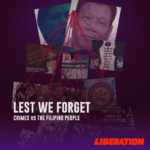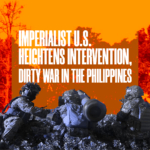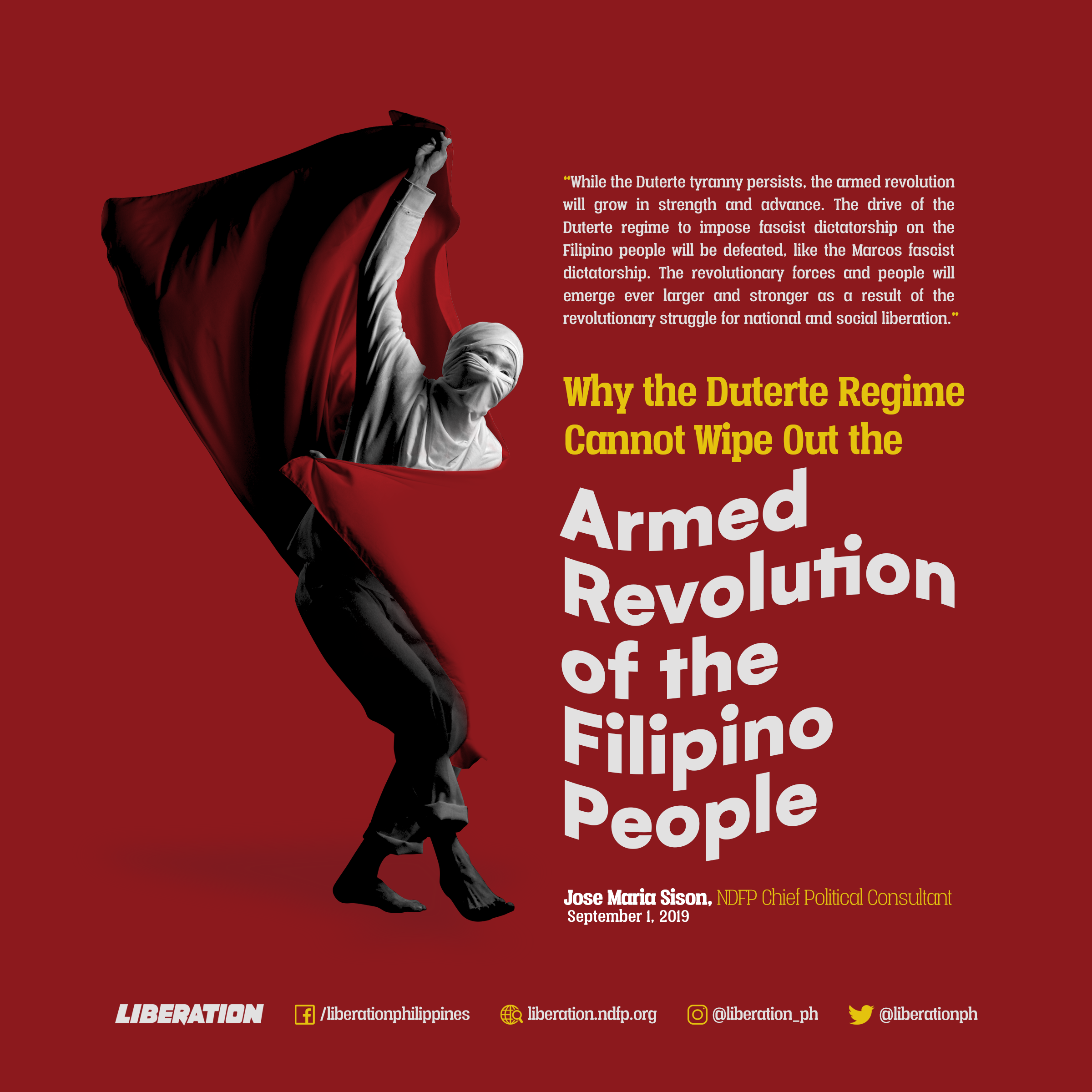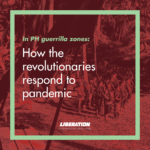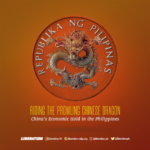MILITARY AND REGIME CHANGE
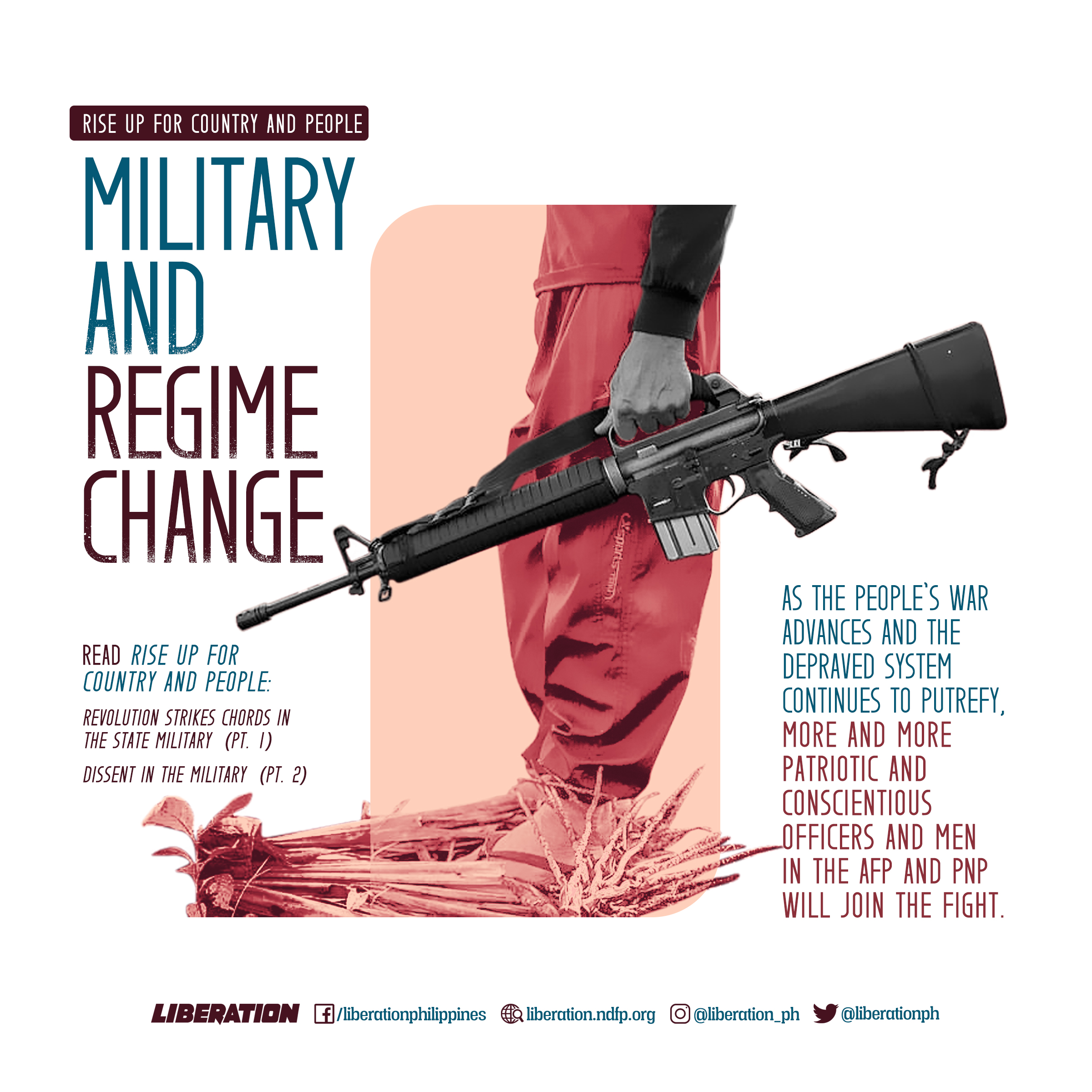
The EDSA People Power uprising has shown how the collective action of a long-suffering people buttressed by the military has toppled decades of Marcos’s fascist dictatorship.
Authority became paper tiger as the strongman’s order to crush the uprising was defied.
Soldiers from various regions left their camps and marched to EDSA to join the raging throngs. Even some members of the Presidential Security Group (PSG) left their posts to support the mass.
Although the people’s victory was short of overthrowing the depraved social system, it was a testament to the strength of the people’s will bolstered by a military component. It signalled the weakening of a moribund system, it presaged that the upcoming rulers would not be able to rule in the same old way.
The ouster of President Joseph Estrada by the mass movement was also punctuated by the withdrawal of support by the military to the regime.
The Oakwood mutiny followed by the Peninsula siege staged by the Magdalo group of junior officers and enlisted men though foiled by their failure to rely on the support of the masses rather than that of interest group of politicians, bears hope that the disillusioned members of the AFP/PNP can be enlightened and mobilized against a debased spent force of the ruling elite.
The show of the critical support of the military in regime change inspires an intensifying efforts for arousing, abetting the patriotic, organizing and mobilizing them, and winning them over to the people’s army, to the people’s cause.
Over the years, the number of commissioned officers, soldiers and paramilitary forces who have supported and made significant contributions to the revolutionary movement is growing.
As the people’s war advances and the depraved system continues to putrefy, more and more patriotic and conscientious officers and men in the AFP and PNP will join the fight. ###
=====
READ: Rise up for country and people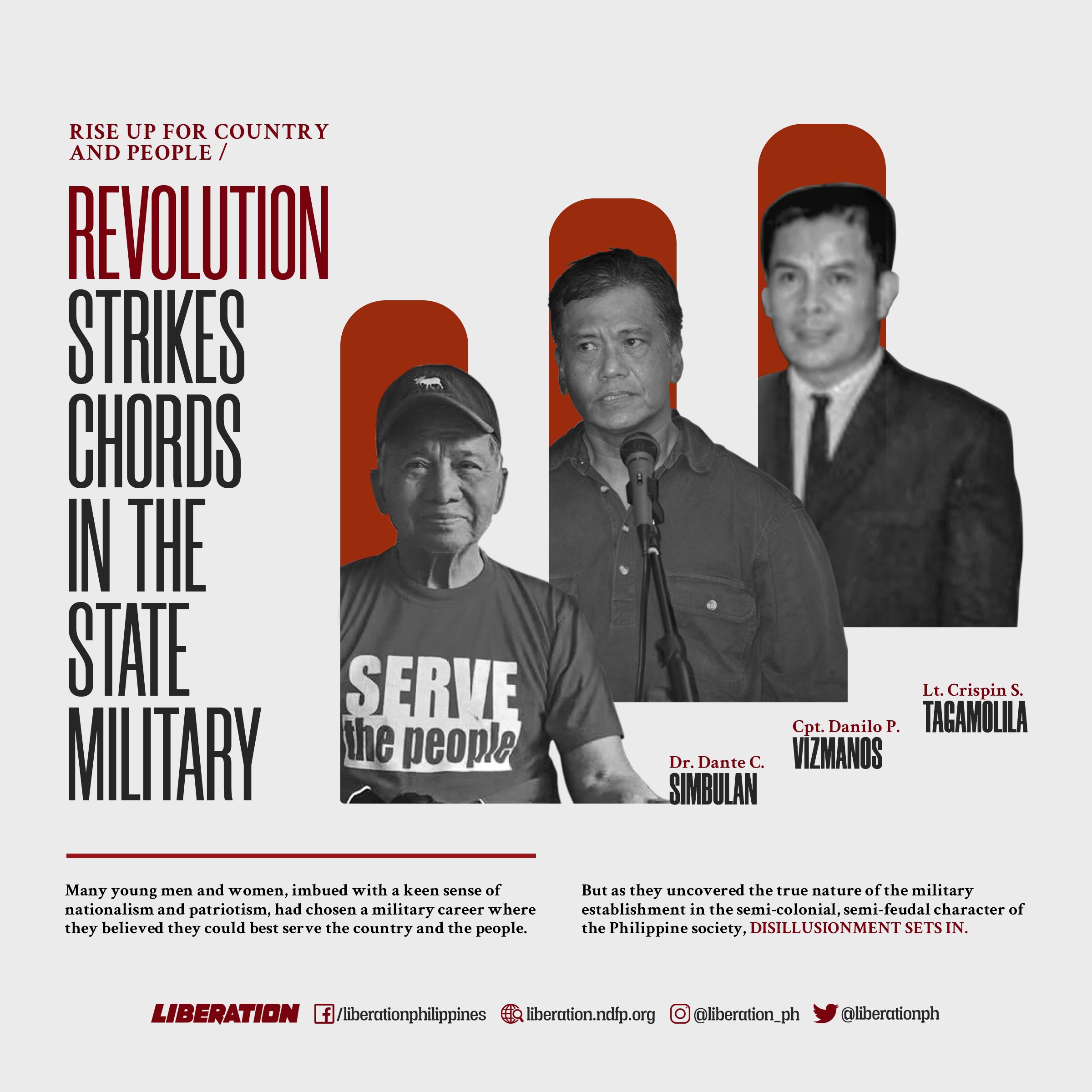
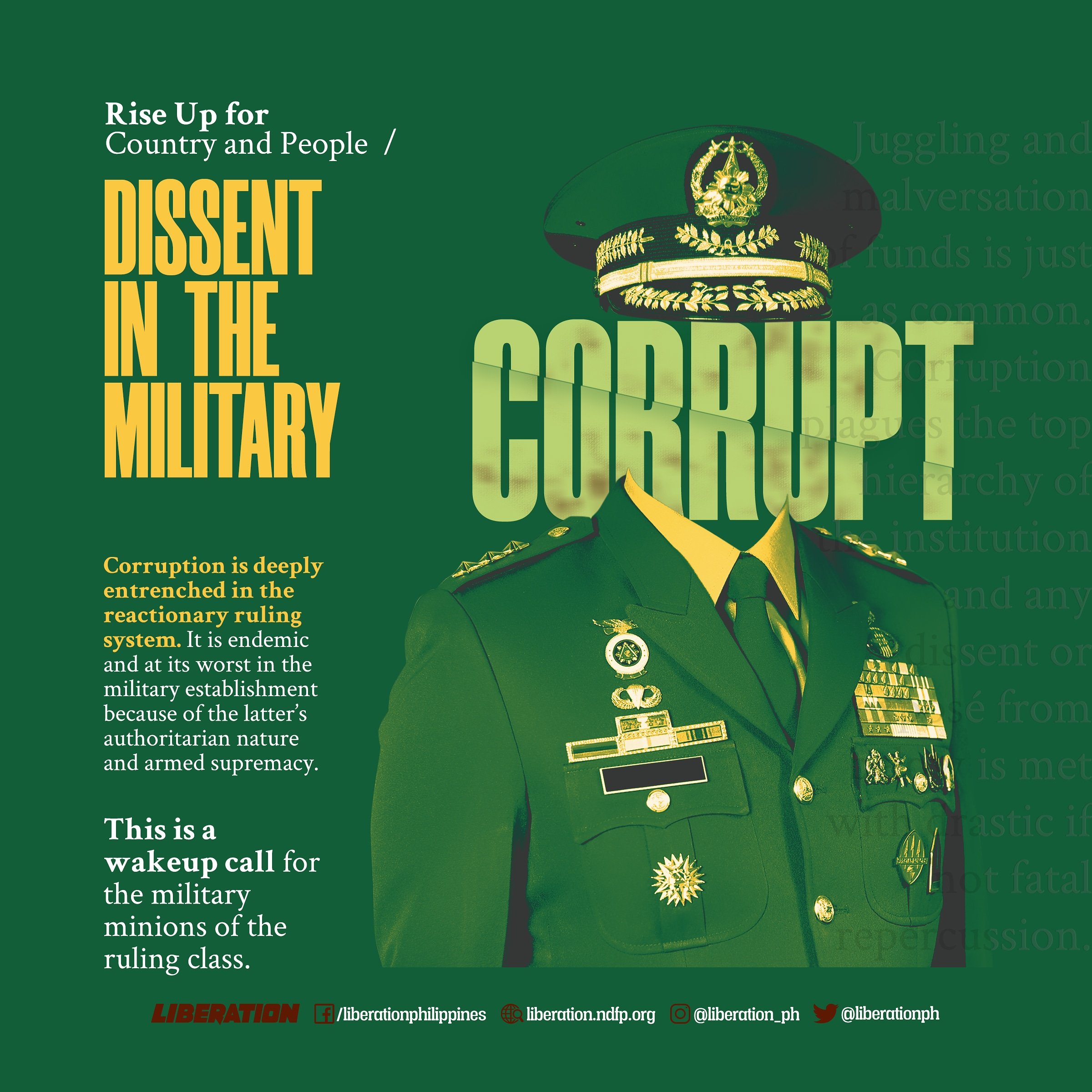
#ServeThePeople
#JoinTheNPA
—–
VISIT and FOLLOW
Website: https://liberation.ndfp.info
Twitter: https://twitter.com/liberationph
Instagram: https://instagram.com/liberation_ph—–
VISIT and FOLLOW
Website: https://liberation.ndfp.info
Facebook: https://fb.com/liberationphilippines
Twitter: https://twitter.com/liberationph
Instagram: https://instagram.com/liberation_ph



